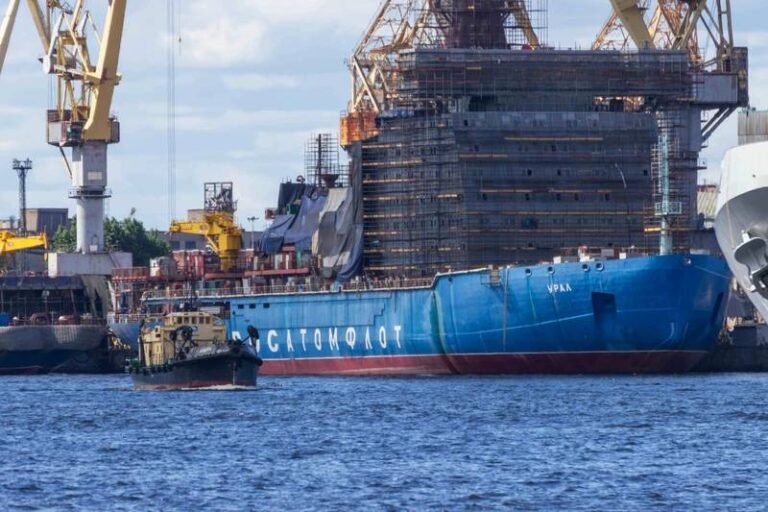Russia Expects 50% Increase in Foreign Vessels Using Northern Sea Route
Russia is anticipating a significant surge in voyages by foreign vessels utilizing the Northern Sea Route (NSR) along its Arctic coast this year, according to state-controlled nuclear energy firm Rosatom. This route is seen as an attractive alternative to the traditional Suez Canal route, offering shorter transit times and strategic advantages.
Rosatom, responsible for managing operations along the NSR, has reported a growing interest from international companies in utilizing this Arctic passage. The NSR connects Russian ports with China, providing a more efficient route during the summer months and potentially saving vessels up to 10 days compared to the Suez Canal route.
By promoting the NSR, Moscow aims to offer a route that bypasses the borders of European Union member states, especially amidst increasing geopolitical tensions. The company stated, “There is a clear upward trend in international interest in the NSR, with foreign companies expected to conduct at least 1.5 times more voyages through the NSR by 2025.”
As of May 27, Rosatom has received 196 applications for vessel navigation along the NSR, including foreign-flagged vessels. The summer-autumn navigation season is set to open from July 1 to November 30, facilitating increased maritime traffic through the Arctic passage.
Last year witnessed a record volume of nearly 38 million metric tons of various goods, such as oil and liquefied natural gas, being shipped along the NSR. Despite its advantages, the route poses challenges due to thick winter ice, limiting navigation to the warmer months.
While Russian shipping giant Sovcomflot has historically dominated the NSR, other companies like Azerbaijan-based Vista Vvave Shipmanagement have started utilizing the route, showcasing its growing popularity among international shipping operators.
With the potential to reshape global maritime trade routes and offer strategic advantages, the Northern Sea Route is gaining traction as a viable alternative to traditional shipping lanes. As the Arctic region becomes more accessible due to melting ice caps, the NSR could play a crucial role in shaping future maritime transportation.
(Source: Reuters/Reporting by Reuters reporters in Moscow and Gleb Stolyarov; Editing by Joe Bavier)

